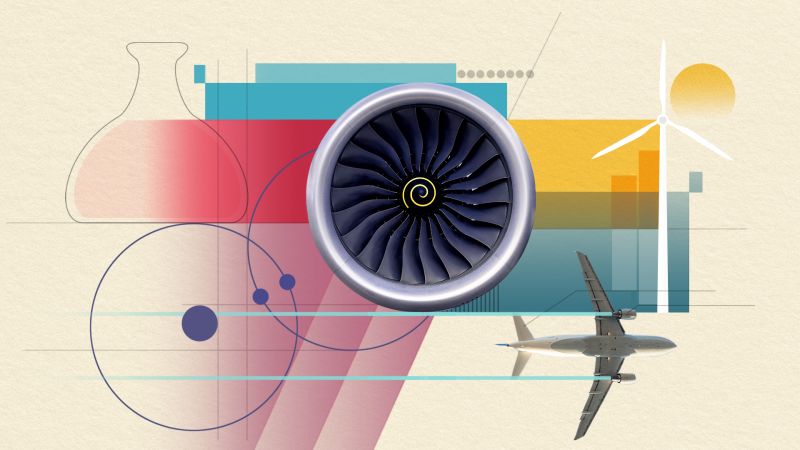The Future of Flight: Transforming Aviation with E-Fuels
Key Ideas
- Research labs are developing sustainable aviation fuel (SAF) that pulls CO₂ from air, aiming for virtually emissions-free flights.
- E-fuels, made using renewable hydrogen and captured CO₂, offer a carbon-neutral alternative with the potential to decarbonize aviation.
- Companies like Twelve are pioneering low-temperature CO₂ electrolysis for synthetic jet fuel production, with up to 90% emission reduction compared to fossil fuels.
- Despite high costs, major airlines are starting to invest in e-fuels, with expectations for broader deployment by 2030 and specific adoption targets set for the future.
The article explores the emerging field of sustainable aviation fuel (SAF), particularly focusing on e-fuels that have the potential to revolutionize the aviation sector. By extracting CO₂ from the air and using renewable hydrogen, e-fuels offer a path to carbon-neutral aviation, reducing emissions significantly. Companies like Twelve are leading the way with innovative low-temperature CO₂ electrolysis methods, making e-fuel production more efficient and scalable. Major airlines are already investing in e-fuels, with expectations for commercial flights using these fuels by 2030. The article highlights the environmental benefits of e-fuels over traditional biofuels and the importance of transitioning to sustainable aviation to combat climate change. While challenges like high costs and slow adoption rates exist, the overall sentiment is positive towards the potential of e-fuels to transform aviation into a more environmentally friendly industry.
